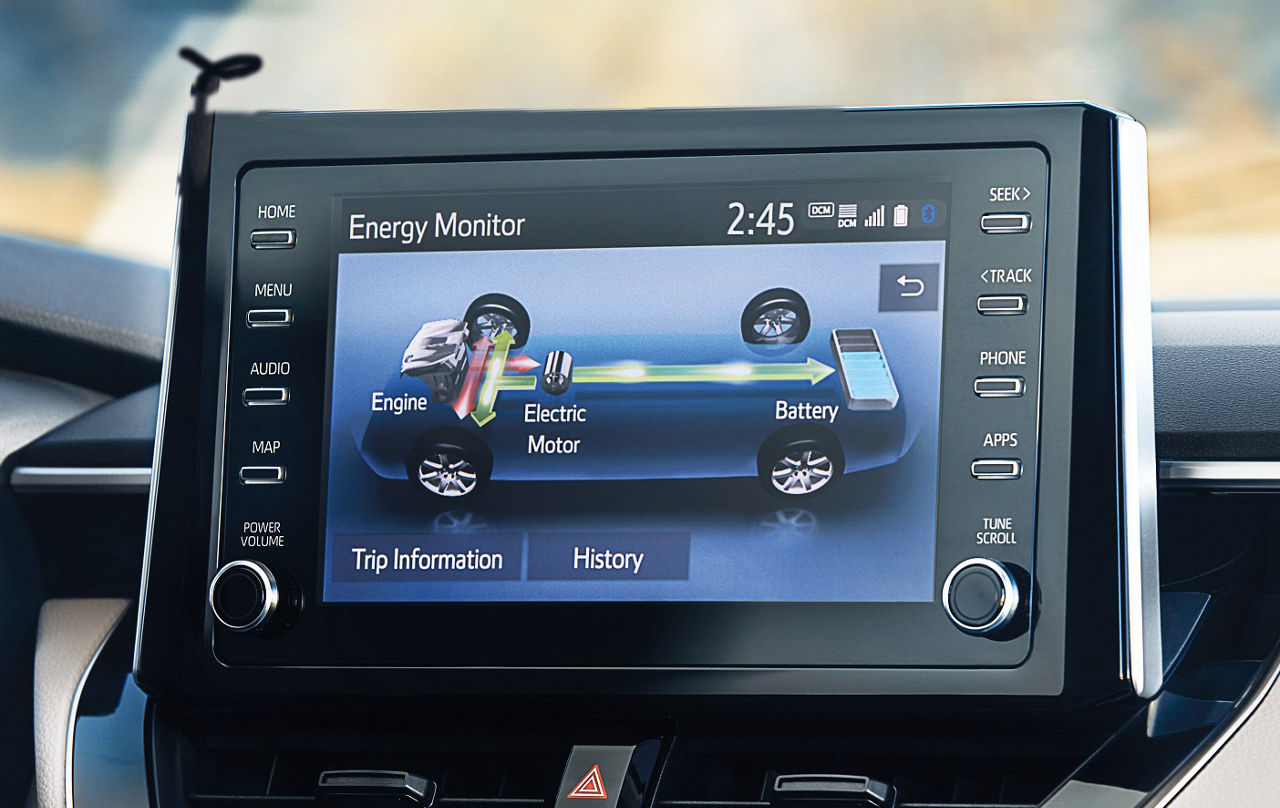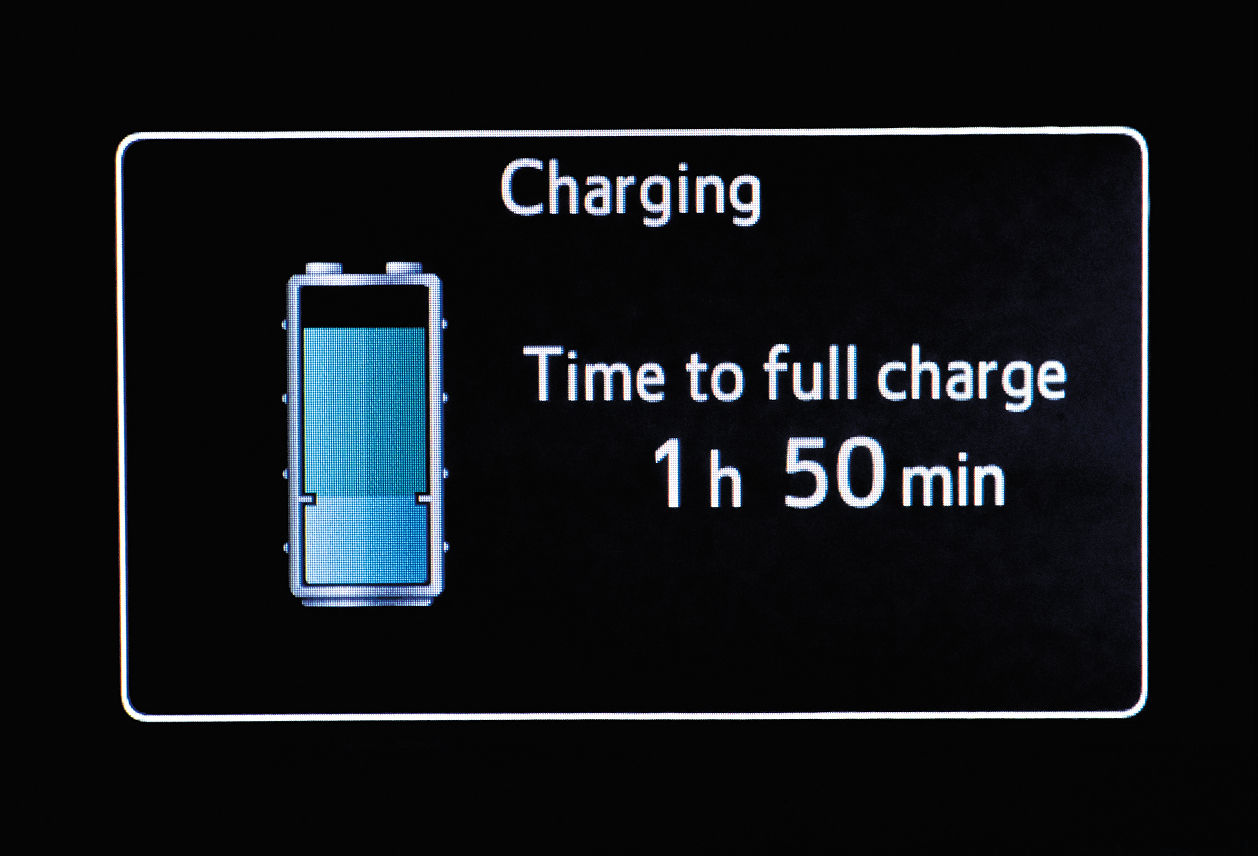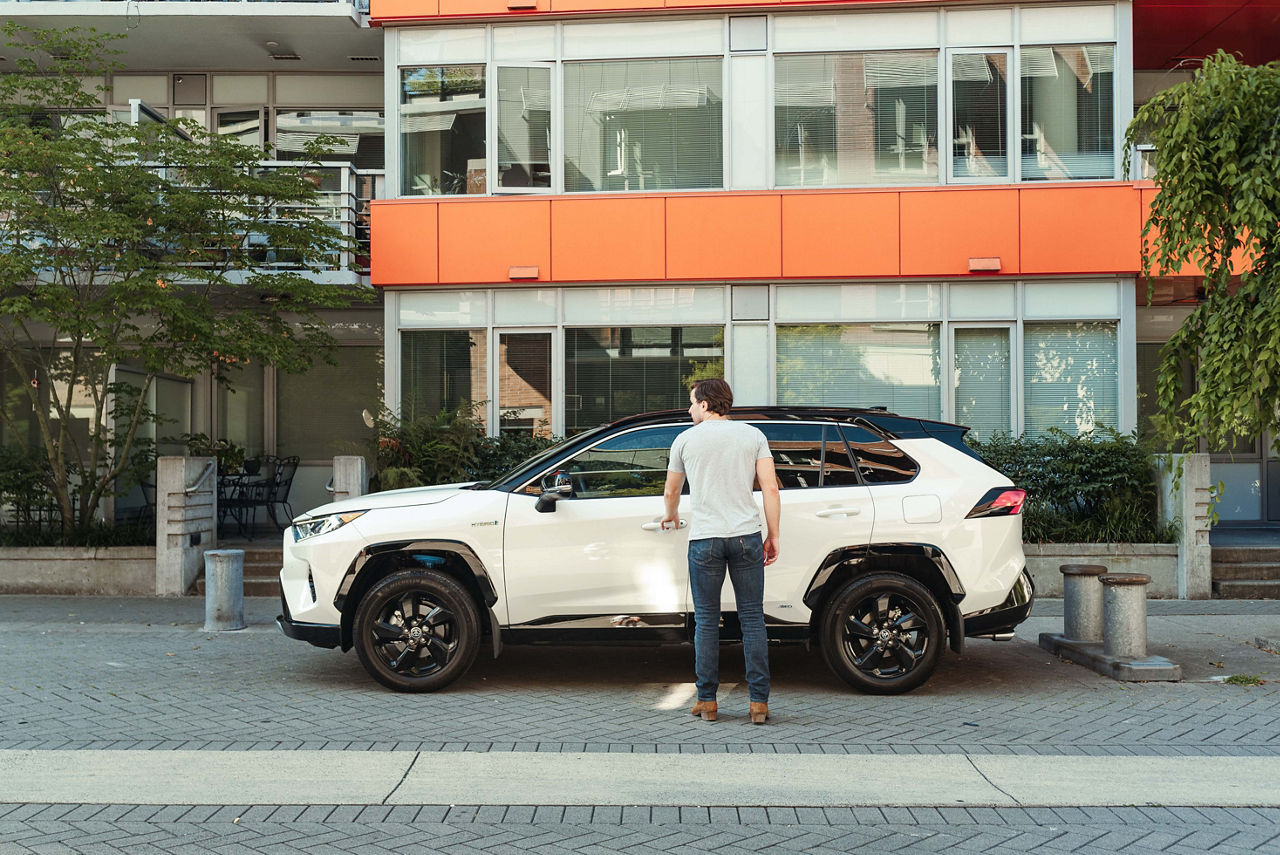Select a province & language
Entrance to this website assumes you have read and agree to these Legal Terms and Conditions and the Privacy Policy.
Entrance to this website assumes you have read and agree to these Legal Terms and Conditions and the Privacy Policy.
When it comes to Hybrid Electric Vehicles (HEVs), the batteries are what helps make HEVs more efficient than conventional gas-powered vehicles. And why they deliver such smooth, seamless acceleration, along with an incredibly quiet ride.
Hybrid Electric batteries are extremely safe, durable, and readily recyclable at the end of their effective life. In fact, the more you know about this power source, the more you will appreciate the power of going Hybrid Electric.
Let’s start with some basics. First off, a Hybrid Electric Vehicle, including Plug-In Hybrid Electric, actually has two batteries. A Hybrid battery, and a 12-volt battery, just like in a combustion-engine vehicle.
Fundamentally, both batteries operate in a similar way. They both have a positive and negative electrode that sit in an ion-rich solution called electrolyte, and generate electricity through a complex interplay between ions (atoms with an electrical charge) and electrons.

The 12-volt battery generates enough electricity to start the car. But the Hybrid Electric Battery generates enough power to move the entire vehicle.
The next thing to know is that a Hybrid Electric Battery isn’t just a single battery or cell, but a battery pack that houses and connects a series of individual cells. The Toyota Highlander Hybrid’s battery pack for example, has 240 cells. It is the combined power of all the cells that is really the juice behind the vehicle.
It’s also important to know that there is more than one type of battery that can be used to power an electrified vehicle, whether that’s a Hybrid Electric (HEV), Plug-In Hybrid Electric (PHEV) or pure Battery Electric (BEV).
As the name indicates, Nickel-Metal Hydride batteries use both nickel and other metals for their electrodes. They are used extensively in HEVs, including the majority of Toyota Hybrids. They are proven, durable, require little maintenance, and are fully recyclable.
A more recent evolution, Lithium-ion batteries are made of carbon and lithium. Compared to NiMH batteries, they are smaller, lighter, and hold a greater charge – all of which translates to better efficiency. Li-ion batteries are increasingly used in HEVs, and used exclusively in Toyota PHEVs, like the Prius Prime and the RAV4 Prime. They are also the battery choice of pure BEVs.
The holy grail of batteries, Solid State battery technology promises to revolutionize electrified vehicles of all stripes. Using both solid electrodes and a solid electrolyte, Solid State batteries will be even smaller, charge faster and store more energy than the current Li-ion technology.
One of the few automotive manufacturers to develop their own batteries in-house, Toyota Motor Corporation recently announced a 13.5 billion dollar investment by 2030 to develop 10 different battery lines, with a focus on becoming industry-leaders in Solid State battery technology.
It might surprise you to know that Toyota HEVs like the RAV4 Hybrid never need to be plugged in. That’s because the Hybrid Electric Battery recharges on the go through a regenerative braking system that converts braking energy into electrical energy. So there is no need to change your driving habits or worry about where the next charging station might be.

The same is true of Toyota PHEVs like the Prius Prime. The battery recharges as you drive, but can also be plugged in to charge a larger battery, that provides the ability to travel further and at higher speeds in electric-mode alone.
The battery pack in a pure battery electric vehicle always requires plugging in. That’s because there is no secondary power source, like a gas engine, to take over when battery power runs low.
Toyota Hybrid Electric Batteries are designed to last the life of the vehicle and come with a 10-year or 240,000-kilometer warranty (whichever comes first)[¹]. Proper maintenance can extend the life of your Hybrid Electric Battery even further.
However, time and travel do take their toll, and eventually a Hybrid Electric Battery may need replacing. Since the launch of the first Prius, Toyota Canada has had a robust hybrid battery recycling program in place. Recapturing useful metals, removing potentially toxic elements, and diverting upwards of 98 percent of battery material from landfill.
Even more environmentally sound than recycling is to reuse. Both NiHM and Li-ion batteries maintain about 80 percent of their capacity after their useful in-vehicle life. Which makes them ideal for storing power.
In 2015, Toyota demonstrated this with the Lamar Buffalo Ranch Project in Yellowstone National Park. 208 repurposed Camry Hybrid batteries were used to store electricity generated by solar panels, providing zero-emissions power to the ranger station and education centre. The first initiative of its kind, it certainly won’t be our last.
When it comes to safety, you can rest assured that Toyota Hybrid Electrics cause no greater concern for passengers or rescuers in the event of a collision than non-hybrid vehicles. Toyota’s Hybrid Electric systems are designed and tested for Canada and adhere to Canada Motor Vehicle Safety Standards. The hybrid batteries themselves are also sealed in a protective metal case and insulated from the vehicle body.

Now that you know everything that you need to know about Hybrid Electric Batteries, the only thing left is to decide which Hybrid Electric Vehicle is right for you. Thankfully, Toyota has one of the broadest lineups of electrified vehicles in the market. Everything from compact sedans like Corolla Hybrid to intermediate SUVs like Highlander Hybrid and the Tundra Hybrid full-size pickup truck. Coming soon, the all-new sub-compact SUV Corolla Cross Hybrid and our first pure BEV, the bZ4X. So, there’s sure to be one to fit your life and power your lifestyle.
Explore the Toyota Electrified Lineup
Disclaimer
[¹] Whichever comes first. See Owner’s Manual Supplement or ask your Dealer for details.